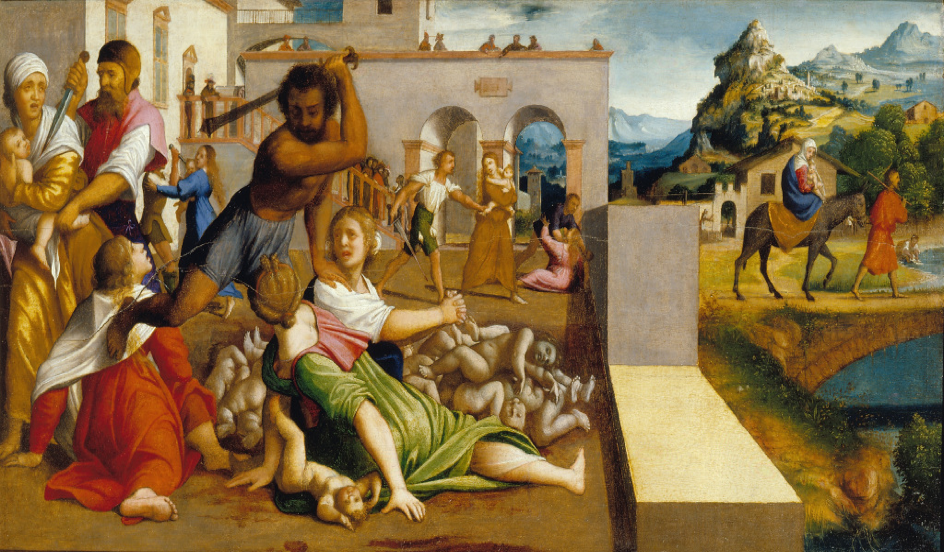
The Cry of the Innocent Children... Do You Hear It?
“The facts do not cease to exist because they are ignored.” —Aldous Huxley
We are in the season of Advent preparing to celebrate one of the profound mysteries of the Christian faith – the incarnation of the Lord. In the context of the Nativity story, the evangelist Matthew narrates a heartbreaking episode, the massacre of innocent children by King Herod (Matthew 2: 16-18). “Then Herod... he was infuriated, and he sent and killed all the children in and around Bethlehem who were two years old or under.” King Herod, blinded by “power” sent his men to kill the children. This episode is known as “the massacre of the innocents.” It is not just something of the past, but a history repeated in our times. When we look at the world panorama, it seems obvious that those who pay the price of wars, conflicts, and selfish acts of the powerful are often the children. The numbers speak to us. More than 350 million children live in war and conflict zone. Around 600 million children live in extreme poverty worldwide. These children are much more likely to be malnourished, get sick, and work in hazardous or exploitative conditions (cf. “Save Children”). According to WHO, it is estimated that, worldwide, up to 1 billion children aged 2 to 17 years have suffered physical, sexual or emotional violence, or neglect in the last year.
In this context, I would like to focus my attention on the importance of prevention of child maltreatment – a responsibility and a task for everyone. It is interesting to read the verses that precede the massacre of the children in the Biblical narrative (Mt 2: 13-15) from a prevention perspective. The text tells us that, warned in the dream by an angel of the Lord, Joseph took the Child and his mother, and went to Egypt – obviously to protect the Child from the danger represented by King Herod. Joseph, as the adoptive father of the child Jesus, takes seriously his responsibility to protect and care for the Child. In the current context, we talk about responsible parenthood. Responsible parenthood is the spirituality of the family where the parents receive, nourish, and protect the gift of life with love and care. They have the great task of providing for the material, physical, psychological and spiritual well-being of the children and of guiding them continuously to become responsible persons in the family and in the society.
It is a positive sign that today there is a greater awareness of the need to protect children from abuse and to carry out prevention programs. There is also an urgent need to join forces through international networks to make the safeguarding of minors more effective and successful. However, it is possible to identify three attitudes that society, in general, has maintained regarding the problem of child abuse, especially when it comes to the sexual abuse of children: (i) A conscious attempt to keep the reality hidden, (ii) An ignorance regarding the real situation, and (iii) An attitude of indifference.
The impact of child maltreatment can be profound and long-lasting in children. It is time to open our eyes and to be a protagonist to safeguard children from abuse. Therefore, it is essential to implement prevention programs to create a safe environment for children. In this process, the role of an integral formation is inevitable and necessary. Through adequate training and formation, we will be able to overcome those attitudes mentioned above and to allow people to be proactive toward the whole issue of child abuse.
In the narration of the birth of the Child Jesus, we see a family – the family of Joseph, Mary and Jesus – seeking shelter, trying to protect the Newborn Child from the danger of being killed, and being a refugee family in Egypt. We also see in the massacre of the innocents, other families and children being victims of the blind thirst for “power” of King Herod ... a history that is often repeated today. What are we, and what are you, going to do about it?

